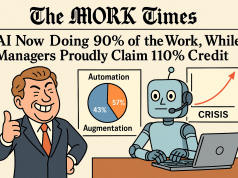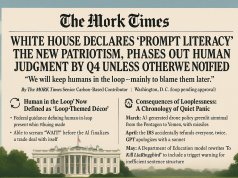In an age where cyber threats mutate with alarming agility, the guardians at the gate—our government’s cybersecurity professionals—stand as the bulwark against a constellation of potential digital crises. The fabric of our nation’s security is woven with zeros and ones, and the need for adept hands to manage this tapestry is undeniable. Yet, the journey to proficiency in the cybersecurity realm is a path less traveled, fraught with complexity and the relentless evolution of cyber threats. It is within this context that we underscore the indispensable role of mentorship in developing the government IT talent required to secure our digital future.
The Current Cybersecurity Landscape
The digital battleground is ceaselessly expanding as cybercriminals, and state-sponsored hackers evolve their tactics. Ransomware attacks cripple essential services, data breaches undermine public trust, and the integrity of critical infrastructure is consistently tested. No entity feels the brunt of these assaults more than the government sector, where the stakes reach national importance.
The Skills Gap Facing the Government Workforce
There’s an unsettling chasm in the cybersecurity workforce—a gap between the volume of skilled professionals needed and the number available. This disparity is particularly acute within the government, where stringent security clearances and the allure of lucrative private-sector compensation create formidable recruitment challenges.
Enter Mentorship
Mentorship emerges as a pivotal force to bridge this divide. Experienced mentors are the cartographers of this labyrinth, offering insights that illuminate the obscured pathways through the cybersecurity landscape. They guide burgeoning talent through the intricacies of cyber defense strategies, regulatory frameworks, and the ethical quandaries that often ensnare the uninitiated.
The Benefits of Mentorship in Government Cybersecurity
Mentorship offers a dual return; it benefits the mentee and fortifies the organization’s defensive capabilities. For mentees, it accelerates professional development, enhances skill acquisition, and provides a framework for navigating career trajectories. For government agencies, it fosters a culture of continuous learning, encourages information exchange across departments, and ensures that the collective knowledge of seasoned professionals is preserved and propagated.
Successful Mentorship Programs and Strategies
Organizations like the Cybersecurity and Infrastructure Security Agency (CISA) have recognized the value of mentorship, launching initiatives that pair veteran IT experts with emerging talent. These programs often focus on real-world scenarios, providing hands-on experience that transcends theoretical knowledge.
Cross-Departmental Coaching
An innovative twist on traditional mentorship within the government sector is cross-departmental coaching. By pairing IT professionals from different agencies, it promotes a broader understanding of cybersecurity challenges faced government-wide and encourages the sharing of best practices.
Engaging in Fruitful Mentorship Relationships
For potential mentors, engaging with mentees is an investment in the future—a chance to shape the defenders of tomorrow. It’s a leadership role that demands empathy, patience, and a willingness to share hard-earned insights. For mentees, the key is to approach mentorship with an open mind, a willingness to learn, and an understanding that constructive criticism is a priceless currency in the realm of personal growth.
In conclusion, as we navigate the labyrinth that is cybersecurity, mentorship stands as a beacon of hope. It’s a strategic advantage that transcends individual accomplishment, nurturing a generation of IT professionals equipped to defend their nation against an ever-morphing cyber threat landscape. By embracing a culture of mentorship, we not only empower individuals but collectively enhance our nation’s cybersecurity posture.




























